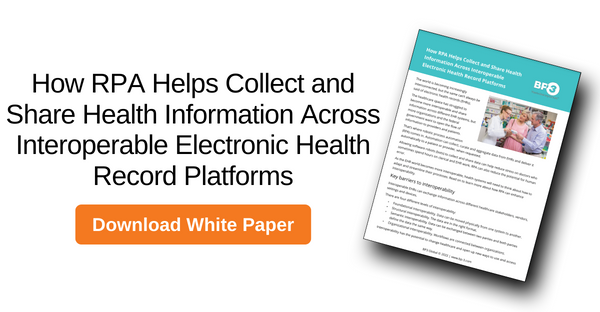RPA can also help healthcare organizations comply with the federal government’s rules around information blocking.
On October 6, 2022, the Office of the National Coordinator’s information blocking rule will go into effect, meaning providers will be required to give patients immediate access to their electronic health information, or to provide that information to a doctor in another health system when requested. Mental health records, pre-litigation notes and information about EHR contract processing are exempt from the requirements.
Automation can access the EHR data on behalf of patients, which can streamline compliance with the information blocking rule and ease burden on providers.
Some EHR vendors could push back and say healthcare organizations can’t use automation to extract and share EHR information with patients and doctors outside of the organization. But that argument might not hold up. Federal law around information blocking doesn’t mention automation, which leaves the door open for organizations to use RPA to share information.
Changing Culture to Shepherd in Interoperability
Automation can make it easier for healthcare organizations and providers to share information, but organizations have to be willing to share the information in the first place.
Healthcare systems need to identify people within their organizations who understand the pros and cons of interoperability and what needs to happen to make the transition. Those people can then connect with others in the organization who are on the fence or who may be more hesitant to change.
Person-to-person sharing can ease the transition and facilitate change.
Interoperability will be a major focus over the next few years, and will undoubtedly have a major impact on providers and patients. RPA can play a key role in reducing burden on doctors and empowering patients with data they can see and understand.
Learn more about implementing an efficient RPA strategy in your organization — within your budget.
